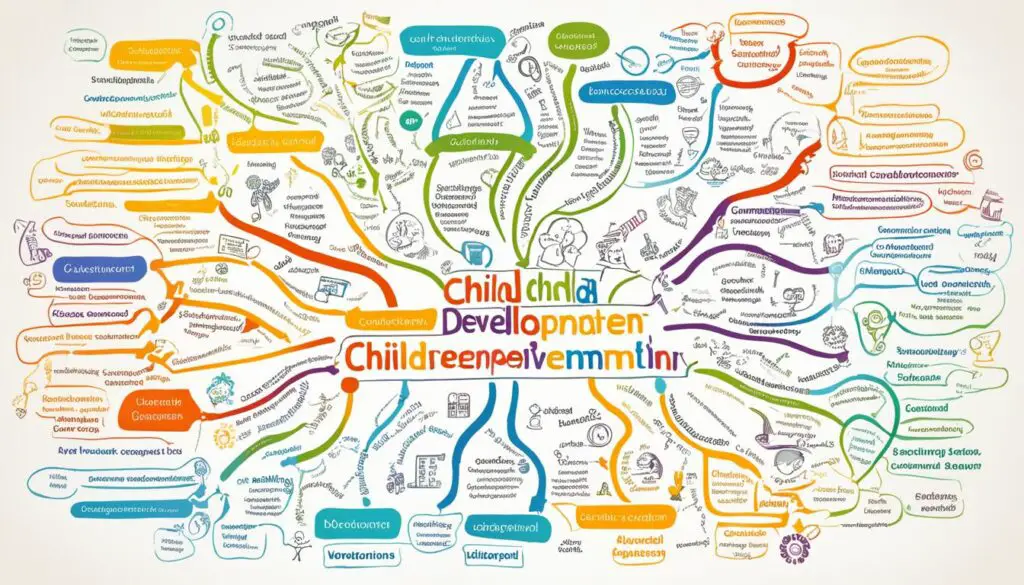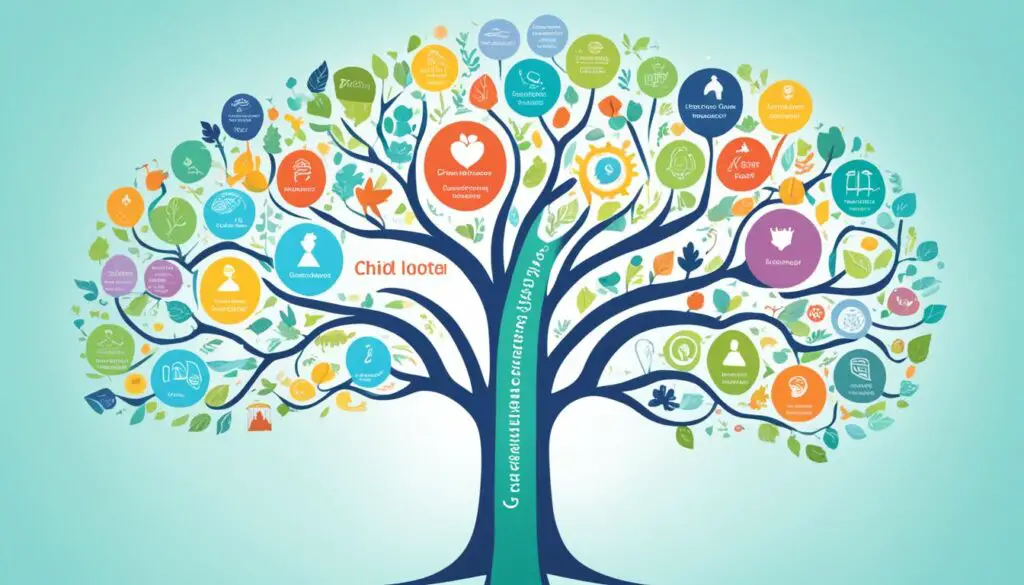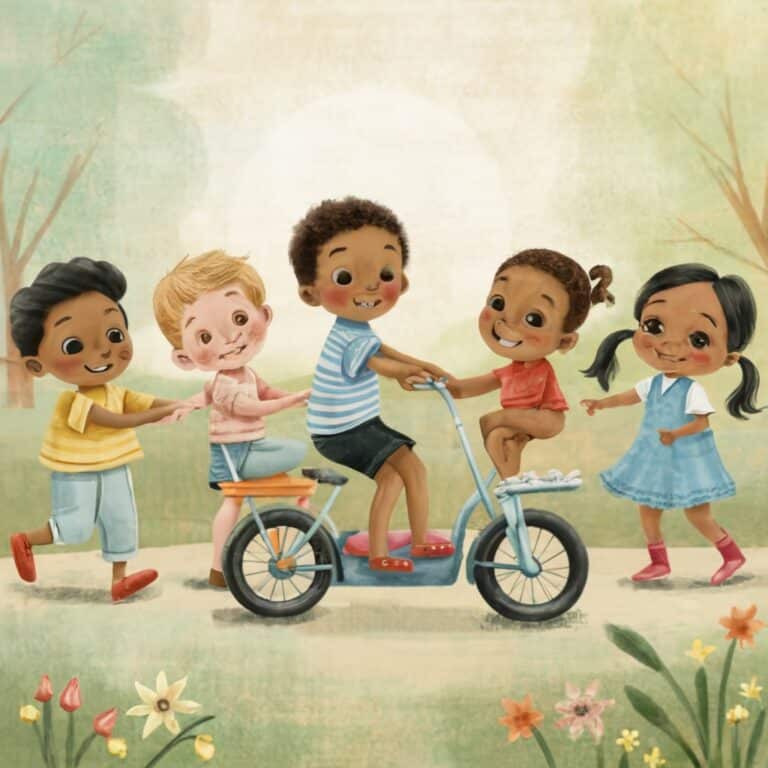Choosing a Child Development Major: Curriculum and Career Paths
Pursuing a child development major in the United States offers an exciting range of opportunities. If you are passionate about working with children and want to make a positive impact on their lives, this field could be the perfect fit for you. In this article, I will explore the curriculum and career paths available to those studying child development, providing valuable insights for prospective students.
Key Takeaways:
- Choosing a child development major opens doors to diverse career paths.
- The curriculum covers essential topics like child psychology, early childhood education, and more.
- Internships and practicum placements provide valuable hands-on experience.
- Graduates can pursue careers in education, social work, counseling, research, and advocacy.
- Advanced degrees can further enhance career prospects in child development.
Child Development Major Curriculum
The child development major curriculum covers a range of topics that are essential for understanding children’s growth and development. Students enrolled in this major will have the opportunity to explore various areas of child development, gaining both theoretical knowledge and practical skills.
Here are some important courses typically included in a child development major curriculum:
- Child Psychology: This course delves into the psychological aspects of child development, exploring topics such as cognitive, social, and emotional development. Students will learn about various theories and models that contribute to our understanding of children’s behavior and mental processes.
- Early Childhood Education: This course focuses on the principles and practices of teaching young children. Students will study different instructional methodologies, curriculum design, and child-centered approaches to education. They will gain a deeper understanding of how to create engaging learning environments that promote children’s cognitive and social development.
- Social and Emotional Development: In this course, students will learn about the social and emotional development of children, examining the factors that influence their social relationships, self-concept, and emotional well-being. They will explore strategies for nurturing positive social interactions and fostering emotional resilience in children.
- Cognitive Development: This course focuses on the cognitive processes and abilities of children, including language acquisition, problem-solving, and critical thinking skills. Students will explore different theories of cognitive development and learn how to create appropriate learning experiences that support children’s cognitive growth.
- Family Dynamics: Understanding the role of the family unit is crucial in child development. This course examines various family structures, parenting styles, and the influence of family dynamics on children’s development. Students will explore strategies for building strong partnerships with families and supporting them in fostering a positive developmental environment for their children.
In addition to these core courses, students pursuing a child development major will have the opportunity to gain hands-on experience through internships or practicum placements in educational settings. These practical experiences provide valuable opportunities for students to apply their knowledge and skills in real-world situations.
The child development major curriculum is designed to provide a comprehensive understanding of child development theories and practical skills needed for working with children. By completing this curriculum, graduates will be well-prepared for a variety of career paths in the field of child development.

The next section will explore the various career paths available to individuals with a child development major, providing valuable insights into the possibilities for graduates in this field.
Career Paths in Child Development
A child development major offers a wealth of career paths in diverse sectors. Graduates of this program have the opportunity to work in various fields, including:
- Education: Many child development majors pursue careers as preschool teachers or elementary school educators, shaping young minds and fostering educational development.
- Social Work: With a deep understanding of child development, graduates can pursue careers as child life specialists or family support workers, providing essential care and support to children and their families.
- Counseling: Some child development majors choose to become child development specialists or early intervention specialists, working closely with children and families to address developmental challenges and promote overall well-being.
- Research: For those passionate about studying child development and contributing to the field’s knowledge, careers in research offer opportunities to conduct groundbreaking studies and inform best practices.
- Advocacy: Child welfare advocates play a vital role in ensuring the well-being and protection of children. With a child development major, graduates can advocate for policies and programs that benefit children and their families.
Many child development majors also opt to pursue advanced degrees in child development or related fields to further enhance their knowledge and expertise, opening up even more career opportunities.
Career Paths in Child Development
| Sector | Common Job Titles |
|---|---|
| Education | Preschool Teacher Elementary School Educator |
| Social Work | Child Life Specialist Family Support Worker |
| Counseling | Child Development Specialist Early Intervention Specialist |
| Research | Research Assistant Child Development Researcher |
| Advocacy | Child Welfare Advocate Child Advocate Coordinator |
This diverse range of career paths ensures that child development majors can find fulfilling roles that allow them to make a positive impact on children’s lives and contribute to the field of child development.

Conclusion
Choosing a child development major can lead to a fulfilling and rewarding career working with children and families. The curriculum provides a solid foundation of knowledge and skills, equipping individuals with the tools they need to make a positive impact on children’s lives.
The career opportunities available to child development major graduates are diverse and varied. Whether you’re interested in education, social work, counseling, research, or advocacy, there’s a path that aligns with your passions and goals. With a degree in child development, you can become a preschool teacher, child life specialist, child development specialist, early intervention specialist, family support worker, or child welfare advocate.
By pursuing a child development major, you have the power to contribute to the well-being and development of future generations. Your expertise in understanding child psychology, social and emotional development, and family dynamics will enable you to make a positive difference in the lives of children and families. It’s a rewarding field that offers the flexibility to adapt to evolving needs and the opportunity to shape the future of our society.
FAQ
What topics are typically covered in the child development major curriculum?
The child development major curriculum covers a range of topics including child psychology, early childhood education, social and emotional development, cognitive development, and family dynamics.
Are there opportunities for hands-on experience in the child development major?
Yes, students have the opportunity to gain hands-on experience through internships or practicum placements in educational settings.
What career paths are available to graduates of the child development major?
Graduates can find employment in education, social work, counseling, research, and advocacy. Some common job titles include preschool teacher, child life specialist, child development specialist, early intervention specialist, family support worker, and child welfare advocate.
Can I pursue advanced degrees in child development after completing the major?
Yes, many graduates choose to pursue advanced degrees in child development or related fields to further advance their careers.
How can a child development major make a positive impact on children’s lives?
By pursuing a child development major, individuals can contribute to the well-being and development of future generations by applying their knowledge and skills to support children and families.






